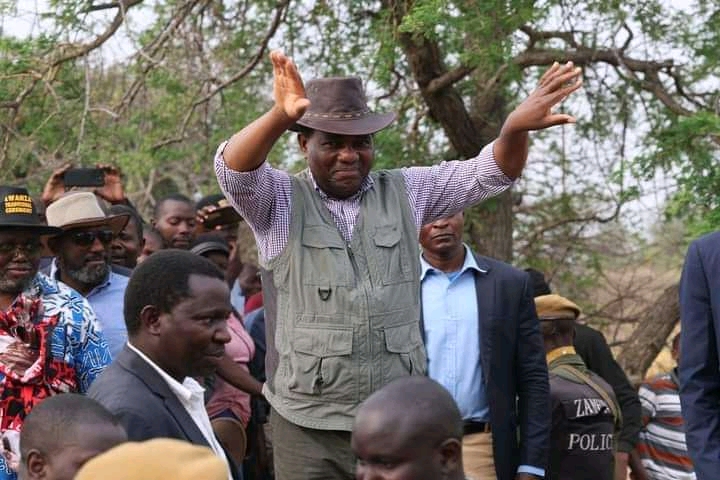The 2016 Presidential Petition: An Examination of Misunderstood Legal Proceedings
In the aftermath of Zambia’s 2016 general election, Hakainde Hichilema, leader of the United Party for National Development (UPND), challenged the results of the election that declared Edgar Lungu of the Patriotic Front (PF) the victor. The election petition, filed with the Constitutional Court, sought to overturn Lungu’s victory, alleging electoral malpractice. However, the nature and handling of this petition have remained clouded in misunderstanding, with many people believing that it had substantive merit, when in fact, the legal process reveals otherwise.
The petition, as originally filed, was widely criticized for being **devoid of merit and seriousness**. It failed to present clear and compelling evidence of election irregularities and suffered from several procedural shortcomings. Recognizing the weak and trivial nature of the petition, Hichilema sought legal representation from **John Sangwa, SC**, one of Zambia’s top constitutional lawyers.
Upon reviewing the petition, **Sangwa observed its deficiencies**, particularly its frivolous and vexatious elements. In a bid to remedy this, Sangwa attempted to amend and refile a more substantial petition. Unfortunately, this was done without obtaining leave from the Constitutional Court, a crucial procedural requirement. As a result, the amended petition was **expunged from the record**.
Sangwa, knowing that proceeding to trial with the original, unamended petition would likely lead to failure, chose not to move forward. Instead, he made multiple **interlocutory applications**—legal maneuvers intended to delay the trial. These delays, though procedural, ultimately contributed to the court’s decision to dismiss the petition.
The **dismissal of the petition** has led to widespread public confusion. Many Zambians, unaware of the procedural flaws and the lack of substantial evidence, have been left with the mistaken belief that the petition had merit and was unfairly dismissed by the courts. The fact that the petition’s contents were never fully publicized has further contributed to this misunderstanding.
Contrary to popular belief, the **Constitutional Court did not dismiss the petition due to external pressure or bias**, but rather because of Sangwa’s deliberate legal strategy and the inadequacies of the case itself. The failure to follow proper procedure, coupled with the absence of strong evidence, rendered the petition untenable from a legal standpoint.
As a result, the public narrative surrounding the 2016 presidential petition is one of misconception. Many Zambians continue to believe that Hichilema’s case had merit, when in reality, the legal process demonstrates that it was lacking in substantive grounds. **Sangwa’s decision not to proceed to trial** on a weak petition was a tactical choice, one that highlighted the inadequacies of the initial filing rather than any bias on the part of the court.
In conclusion, the **2016 presidential petition** stands as a significant case in Zambia’s legal history, not for its merit, but for the **lessons it provides on legal strategy, procedure, and public perception**. It serves as a reminder that legal cases are won and lost not only on the strength of their arguments but also on the meticulousness with which they are presented. For Zambia’s legal and political landscape to advance, it is crucial that the public understands the intricacies of such cases and does not mistake procedural dismissals for the suppression of justice.
The 2016 Presidential Petition: An Examination of Misunderstood Legal Proceedings
